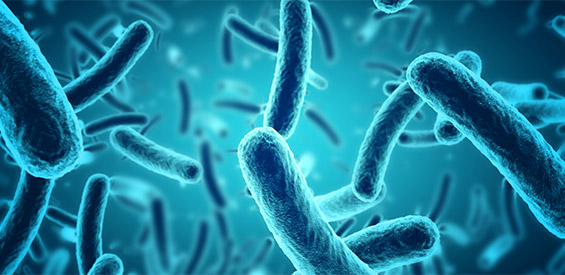The impressive forces inside you
The impressive forces in your intestinal system
In your gut there is a whole world where billions of microbes are actively working to maintain your well-being and actually help to influence your mood. That world is, in fact, an organ called the intestinal microbiome – and it plays a vital role in your digestive tract, your immune system and your brain. Therefore, in order to maintain good well-being, it is important to understand the microbiome and know how to best feed it, maintain it, and maintain the fragile balance.
How does your gut microbiome work?
The body itself is a collection of more than 1,000 microorganisms, bacteria and fungi, which together weigh almost 2 kilos and which actively collaborate on the processes that control the body’s functions.
The role of your microbiome is fundamental, as it is first and foremost what makes your body absorb and use the energy provided by the food you eat. It is a big job, which consists both of getting the various nutrients utilized optimally, but also that they are cleaned up afterwards, and that the substances that cannot be absorbed into the body are removed.
Bacteria that will do you good
The bacteria that are part of the microbiome are not pathogenic. It’s a nice word, which really just means that they are not pathogenic – they just want you well. The microbiome consists of a huge number of these “beneficial bacteria”, which have various beneficial functions when combined. Here are some of the most important of these features.
- They help you digest, by participating in the breakdown and excretion of leftover food that you cannot absorb in the small intestine.
- They participate in the cooperation between good molecules, which affect your health, especially by facilitating the absorption of essential nutrients for the body and ensuring the cooperation between certain vitamins.
- They help maintain the intestinal barrier, which is responsible for secreting digestive enzymes and absorbing nutrients. They do this, among other things, by producing fatty acids, which have a positive effect on the mucous membrane, which protects the barrier against the contents of the intestine.
- They strengthen your immune system by limiting the uptake of harmful bacteria and toxins through the barrier, thus preventing unwanted bacteria from multiplying.
The brain and the stomach talk together
The microbiome also includes the very important neurons. No less than 200 million of them. The function of neurons is to communicate with our brain and therefore there is a clear connection between our stomach and our brains. The connection goes both ways, and we probably know it best from when we are worried and have the feeling of having a lump in our stomach. It’s actually just our brain telling the stomach that we’m insecure about something. In the same way, our stomachs can tell the brain when it lacks a specific diet – and therefore the microbiome influences our choice of food via communication with the brain. What few people know is that the microbiome also directly affects our mood. It takes place via the substance called serotonin, which is a substance that is responsible for controlling our emotions.
An intestinal microbiome in balance
Now that we know more about the many important functions of the gut microbiome, it is easier to understand the importance of the microbiome feeling good. This means that we ourselves are well. In order to have a microbiome in balance, one must first and foremost make sure to eat varied. In this way, care is taken to feed the many microorganisms with different types of nutrients and thus maintain a good “culture”.
However, even with a varied diet, you may need to maintain the microbiome by adding lactic acid bacteria , which help maintain balance. There are many products on the market that do just that, but common to many of them is that they are age and need dependent. Therefore, it is important that you make sure to use products that are appropriate for your age.
6 things worth remembering. The microbiome is essential for your health and well-being. In particular, the microbiome ensures:
- Production of vitamins, including B12, B8 and K vitamins.
- Stimulation of the immune system by learning to distinguish allies from enemies.
- Protection against harmful microorganisms.
- The production of important molecules that travel throughout the body.
- The digestion of the nutrients it converts into vital energy for the body.
- The synthesis of 95% of your serotonin – a neurotransmitter responsible for controlling emotions.
Sources:
Série santé 2030 – Emission on the microbiote: a super organism
Intestinal Microbiote (intestinal flora), Inserm.
Jandhyala, SM, Talukdar, R., Subramanyam, C., Vuyyuru, H., Sasikala, M., & Nageshwar Reddy, D. (2015). Role of the normal gut microbiota. World Journal of Gastroenterology, 21 (29), 8787–8803.
Health series 2030 – Program on microbiota: a super organism
Intestinal microbiome (intestinal flora), Inserm.


